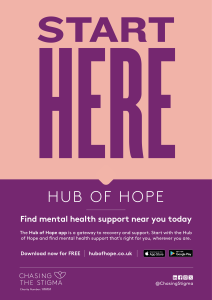Coronavirus
Information for Parents
Latest Update – 04/05/22
Coronavirus/COVID-19
There are still cases of COVID-19 in England and there is a risk you could catch or pass on the virus, even once you are fully vaccinated. This means it is important that you understand and consider the risks of catching or spreading COVID-19 in all situations.
While no situation is risk free, there are easy and effective actions you can take to protect yourself and others around you.
If you are worried about going back to a more ‘normal’ life, there is information from the NHS on how to cope with anxiety about lockdown lifting. https://www.nhs.uk/every-mind-matters/coronavirus/tips-to-cope-with-anxiety-lockdown-lifting/
What has changed (last updated 04.05.22)
The government is removing remaining domestic restrictions in England. There are still steps you can take to reduce the risk of catching and spreading COVID-19:
- Get vaccinated
- Let fresh air in if meeting indoors, or meet outside
- Consider wearing a face covering in crowded, enclosed spaces
- Get tested if you have COVID-19 symptoms, and stay at home if positive
You will not be legally required to self-isolate if you test positive for COVID-19. Stay at home if you can and avoid contact with other people.
You will not have to take daily tests or be legally required to self-isolate following contact with someone who has tested positive for COVID-19.
We will continue to use hand sanitiser, wash hands regularly and ventilate working areas as much as possible.
We will continue with existing arrival arrangements for learners and students e.g. using side entrances.
Face coverings are no longer required (except if you test positive).
Visitors are now allowed on site.
Our offer continues to be underpinned by our risk assessment and we will keep COVID-19 under review, if the situation changes we will revise this and our plans accordingly.
If any health matters relating to your child or wider family have changed, please inform us immediately to ensure the whole organisation can remain safe and healthy.
We recognise the challenges parents/carers have faced and hope you feel reassured that we will continue to support you whenever we can.
If any health matters relating to your child or wider family have changed, please inform us immediately to ensure the whole organisation can remain safe and healthy.
We recognise the challenges parents/carers have faced and hope you feel reassured that we will continue to support you whenever we can.
Latest Update
Further to the government announcement on 30 December 2020 and the subsequent broadcast at 8pm on Monday 4th January 2020, the start of our term was delayed for students with a phased return from Tuesday 5th January 2021. This delayed opening was to allow us time to comply with Covid testing.
Our priority remains to keep all our students and staff safe and healthy.
Our provision during this current lockdown will be similar to that initially provided during Phase 1 of the lockdown (March 2020), however, this will be reviewed on a weekly basis. In addition to some students continuing to access school/college/residential, the Therapy/Clinical Services team will also support our remote service alongside an ongoing e-learning resource which will be available to all students.
As an educational provision, we are endeavouring to balance the wider social, emotional, wellbeing and learning needs of all, set against maintaining the excellent strategies we have maintained thus far with regards to Covid 19.
We will review our offer on a weekly basis to ensure the safety of all students and staff can be maintained within their individual classes/learning bubbles.
We are conducting COVID flow testing and providing social stories and visual timetables to support our 11 + age students’ access to COVID tests. With students’ individual therapy needs continuing to be supported.
We continue to remain vigilant by encouraging high levels of cleanliness particularly with handwashing.
Please be aware of the government campaign, Hands, Face, Space – Click here for more information.
Please continue to follow Government Guidelines with regards to displays of symptoms of Coronavirus – Click here for more information.
Please remember that if you have symptoms you must self-isolate and not leave your house for at least 10 days along with all other members of your household.
External visitors are currently only accepted on site following a risk assessment and approval from the Senior Leadership Team.
How New National Restrictions to control the spread of coronavirus (COVID-19) impact education, childcare and children’s social care settings.
Please see link below which contains the following information:
More evidence has emerged that shows there is a very low risk of children becoming very unwell from coronavirus (COVID-19), even for children with existing health conditions. Most children originally identified as clinically extremely vulnerable no longer need to follow original shielding advice. Parents should be advised to speak to their child’s GP or specialist clinician if they have not already done so, to understand whether their child should still be classed as clinically extremely vulnerable.
Those children whose doctors have confirmed they are still clinically extremely vulnerable are advised not to attend education whilst the national restrictions are in place. Schools will need to make appropriate arrangements to enable them to continue their education at home.
Children who live with someone who is clinically extremely vulnerable, but who are not clinically extremely vulnerable themselves, should still attend education.
Parents of clinically extremely vulnerable children will be receiving a letter shortly confirming this advice.
Coronavirus information poster for parents/carers: download here.
UK Chief Medical Officers’ statement on the self-isolation period: 11 December 2020
Self-isolation is essential to reducing the spread of COVID as it breaks the chains of transmission. After reviewing the evidence, we are now confident that we can reduce the number of days that contacts self-isolate from 14 days to 10 days.
Visit gov.uk website here for more information
Exercise
The risk of the coronavirus being passed on to others outdoors is considered to be low as long as people maintain social distancing.
In England, you can leave your home to exercise and spend time outdoors for recreation:
- with your household or support bubble
- in groups of up to six people from outside your household or support bubble
When travelling to outdoor spaces, it is important that people respect the rules in Scotland, Wales and Northern Ireland. Do not travel to different parts of the UK where it would be inconsistent with guidance or regulations issued by the relevant devolved administration.
Please see link for detailed guidelines:
https://www.gov.uk/guidance/coronavirus-covid-19-advice-on-accessing-green-spaces-safely
Autism and eating
Resources for parents/carers
Autism-sport-physical-activity
Maintaining Well-being Final
Relaxation techniques for autistic people- articles of interest
Useful links (National Autistic Society)
NAS Anxiety
NAS Mental Health
NAS Resources
Autism-friendly easy read document for parents
Coronavirus-Easy-Read-Information
Supporting Children with Learning Disability/ASD Coping with COVID-19 Isolation
Tips for supporting your child through the Corona Virus pandemic
Autism-friendly Coronavirus Social Story
Guidance on social distancing for everyone in the UK
Click here for guidance information
Educational resources
The e-Bug project is led by Public Health England and has a dedicated webpage for learning resources on hand washing and respiratory hygiene.
Resources are currently available for KS1, KS2 and KS3 and can be used in various settings including schools.
They can be found here.Latest Department for Education information:
https://twitter.com/educationgovuk
https://www.facebook.com/educationgovuk/
As you will all know, Coronavirus (COVID-19) is a new illness that can affect your lungs and airways. It’s caused by a virus called coronavirus. At Wargrave House School & College we take the health and safety of our pupils and staff very seriously, so we’re sharing guidance from Public Health England on steps you should be taking. We will keep you informed with regards to developments and please be assured we’re keeping the school and college clean to prevent the spread of any virus.
Information about Coronavirus
Open letter to children and young people with SEND, their parents, families and others who support them from Vicky Ford, MP, Parliamentary Under-Secretary of State for Children and Families
Minister Ford’s open letter to the SEND sector
Coronavirus (COVID-19): what you need to do
We can all help control the virus if we all stay alert. This means you must:
- Stay at home as much as possible
- Work from home if you can
- Limit contact with other people
- Keep your distance if you go out (2 metres apart where possible)
- Wash your hands regularly
- Do not leave home if you or anyone in your household has symptoms
The most important thing we can do is to stay alert, control the virus, and in doing so, save lives.
https://www.gov.uk/government/publications/staying-alert-and-safe-social-distancing
Statement from the UK Chief Medical Officers on an update to coronavirus symptoms: 18 May 2020
From today (18/05/2020), all individuals should self-isolate if they develop a new continuous cough or fever or anosmia.
Anosmia is the loss of or a change in your normal sense of smell. It can also affect your sense of taste as the two are closely linked.
We have been closely monitoring the emerging data and evidence on COVID-19 and, after thorough consideration, we are now confident enough to recommend this new measure.
The individual’s households should also self-isolate for 14 days as per the current guidelines and the individual should stay at home for 7 days, or longer if they still have symptoms other than cough or loss of sense of smell.Full details of each stage in the government action plan can be found here:
https://www.gov.uk/government/publications/coronavirus-action-plan
Handwashing advice
The most important thing individuals can do to protect themselves is to wash their hands more often, for at least 20 seconds, with soap and water. Public Health England recommends that in addition to handwashing before eating, and after coughing and sneezing, everyone should also wash hands after using toilets and travelling on public transport.
Watch this short NHS film for guidance:
https://youtu.be/bQCP7waTRWU
Stay at home: guidance for households with possible coronavirus (COVID-19) infection
Department for Education coronavirus helpline
The Department for Education coronavirus helpline is available to answer questions about COVID-19 relating to education and children’s social care. Staff, parents and young people can contact this helpline as follows:
Phone: 0800 046 8687
Opening hours: 8am to 6pm (Monday to Friday), 10am to 4pm (Saturday to Sunday)
Please note, we are currently experiencing high volumes of calls and apologise for any wait that you may experience. To ensure that we answer your calls as quickly as possible we have now extended our opening hours to cover weekends.
If you work in a school, please have your unique reference number (URN or UK PRN) available when calling the hotline.
Where to find the latest information
Updates on COVID-19:
https://www.gov.uk/coronavirus
Travel advice for those travelling and living overseas:
https://www.gov.uk/guidance/travel-advice-novel-coronavirus
Please keep your GIAS contacts up to date
If you work in a school, please take this opportunity to review your contact information in Get Information About Schools (GIAS).
To update your record, please go to the GIAS home page, “Sign in” using your “DfE Sign-in” credentials and select GIAS from your available services here:
https://www.get-information-schools.service.gov.uk/



